| Learner's Club
Punctuation
Punctuation is crucial to the structure and organization of writing. These little symbols can make all the difference in a sentence. Incorrect punctuation can cause a lot of trouble, not just in terms of what a sentence means, but also for what emotion the speaker is feeling. Fans of the sitcom Seinfeld may recall the episode where Elaine gets mad at her boyfriend for not using an exclamation mark in the message “She had a baby”. Jerry sardonically remarks, “I never knew a relationship could end over punctuation.” Let's not underestimate its power. Here are some exercises.
1. Capital Letters.
a. We'll see you on Wednesday.
b. I speak Spanish very badly.
c. I like the weather here in the Winter. This is incorrect. Seasons don't normally need a capital letter.
d. Paul is a very difficult person to work with. |
 |
|
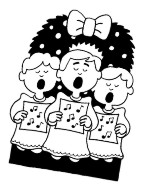
|
2. Commas. Which sentence is wrong?
a. On our trip we went to Japan, Thailand, Bali and Australia.
b. It was no surprise, that you failed the exam.
This is incorrect. Commas cannot separate ideas connected with that, like this example.
c. My aunt Julie, who often visits, us, will be here for Christmas.
d. 'I am not happy with your work', he said. |
3. Question marks. Which sentence is wrong?
a. I'll ask him what time it is? This incorrect, as this is an indirect question.
b. I wonder if he knows the answer to all the questions. Note this is correct. For the same reason as above, this sentence doesn't need a question mark.
c. You broke the window again?
d. Your name is Jack?
|
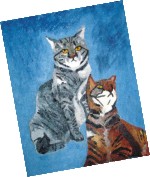
|
| 
|
4. Apostrophes. Which sentence is wrong?
a. He doesn't know the answer, does he?
b. She has lots of cat's at home. This is incorrect. Plurals normally don't need apostrophes.
c. Joe's sister is in the Himalayas.
d. The problem with the business is its location. Note this is correct.
The possessive 'it's doesn't need an apostrophe either.
|
5. Quotation marks: are all of these correct?
a. "You're crazy," she said with surprise.
b. Hamlet was written by 'Shakespeare'. This is incorrect. The title should be ' Hamlet' and the author Shakespeare.
c. The problem of emigration is sometimes called the 'brain-drain'.
d The word 'rhythm' is difficult to spell. |

|
6. Finishing sentences: are all of these correct?
a. It was a great meal-but then I saw the bill.
b. It was a great meal, but then I saw the bill!
c. It was a great meal, but then I saw the bill.
d. It was a great meal, but then I saw the bill? This is not correct, although in spoken language it may be heard (with question intonation). |
Simple Prepositions
A preposition links nouns, pronouns and phrases to other words in a sentence. The word or phrase that the preposition introduces is called the object of the preposition. It usually shows a spatial or logical relationship, such as: the book is beneath the table.
 |
1. What is that book_about_____? It looks interesting.
a. with
b. from
c. on
d. about |
2. I didn't work hard when I was_at_____school.
a. in
b. on
c. at
d. by |
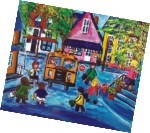 |
 |
3. We're travelling to France_by_____train.
a. with
b. by
c. in
d. at |
4. I have been working here_for _____six months.
a. since
b. by
c. for
d. in |
 |
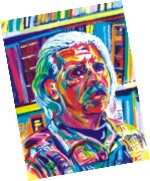 |
5. Where are you_from_____?
a. from
b. by
c. of
d. to |
6. He broke the window_with _____his head.
a. through
b. from
c. with
d. by |
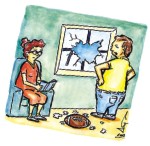
|
Copyright
(R) thedailystar.net 2007 |
|
